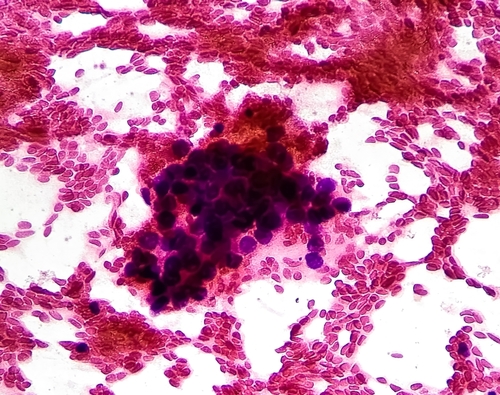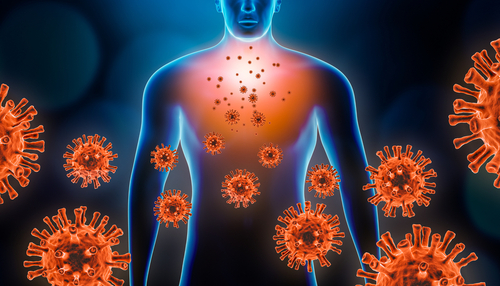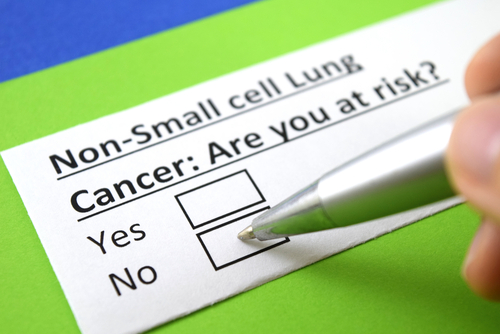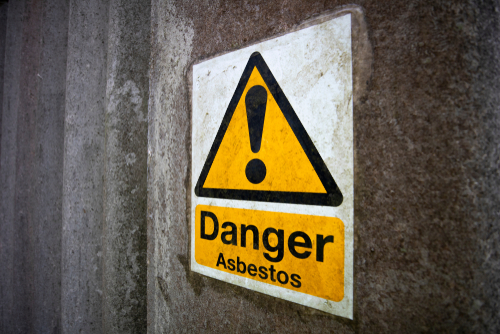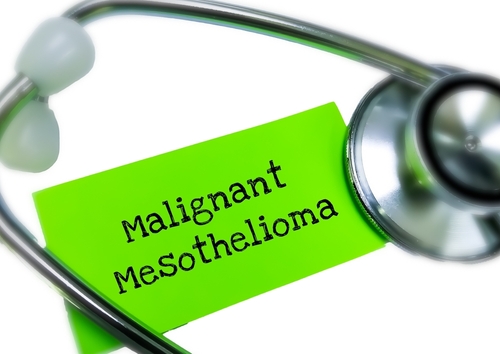Rob Dillard
Articles by Rob Dillard
Marisa Bittoni, PhDLung Cancer | May 2, 2024
Dr. Marisa Bittoni discusses the possible link between vaping and lung cancer risk.Arun KrishnaNon-Small Cell Lung Cancer | February 28, 2025
Arun Krishna, of AstraZeneca, talks about the phase 3 FLAURA2 trial, which assessed Tagrisso in patients with NSCLC.Rob DillardLung Cancer | March 21, 2024
Bronchoalveolar lavage supernatant may serve as a possible target in early-stage lung cancer research, a recent study showed.Rob DillardNon-Small Cell Lung Cancer | March 11, 2024
Immune checkpoint inhibitor therapy alone may be recommended for older adults with previously untreated advanced NSCLC.Rob DillardLung Cancer | February 20, 2024
Prevention measures should be taken to protect workers who are exposed to RCS from lung cancer risk.Rob DillardNon-Small Cell Lung Cancer | February 14, 2024
A combination of targeted therapy and immunotherapy may benefit patients with non-small cell lung cancer.Rob DillardNon-Small Cell Lung Cancer | February 12, 2024
Accurately diagnosing pneumonitis in patients with inoperable stage III non-small cell lung cancer is challenging.Rob DillardMesothelioma | February 5, 2024
Analyzing the exhaled breath of patients with mesothelioma shows tremendous potential as a screening tool.Rob DillardLung Cancer | January 8, 2024
A novel technology based on nanosensors may be able to effectively detect early-stage lung tumors.Rob DillardNon-Small Cell Lung Cancer | January 4, 2024
Iovance Biotherapeutics has announced a clinical program update for LN-145 TIL therapy in the treatment of NSCLC.Alexandra PotterLung Cancer | December 28, 2023
Alexandra Potter talks about health disparities that exist in lung cancer screening and treatment, and possible solutions.Rob DillardLung Cancer | December 13, 2023
Tai chi improves sleep quality, as well as physical and psychological outcomes, in patients with advanced lung cancer.Rob DillardNon-Small Cell Lung Cancer | December 8, 2023
Over 50% of patients with advanced non-small cell lung cancer are untested for biomarkers.Rob DillardLung Cancer | December 1, 2023
Structural racism plays a fundamental role in the unequal distribution of lung cancer risk factors.Dr. Mona JhaveriLung Cancer | November 29, 2023
Dr. Mona S. Jhaveri discusses the importance of Lung Cancer Awareness Month, recent breakthroughs in lung cancer, and more.Mark McDonoughNon-Small Cell Lung Cancer | February 28, 2025
Mark McDonough, CEO of ChromaCode, discusses an innovative, high-definition PCR assay for enhanced detection of NSCLC.Rob DillardMesothelioma | November 14, 2023
Asbestos exposure led to a higher incidence of asbestos-related lung cancers in naval personnel.Rob DillardLung Cancer | November 13, 2023
Dr. Melissa Johnson, of Sarah Cannon, discusses lung cancer trials to keep an eye on and unmet needs in lung cancer.Rob DillardNon-Small Cell Lung Cancer | November 7, 2023
Taxus chinensis has significant therapeutic potential in alleviating non-small cell lung cancer.Rob DillardMesothelioma | November 3, 2023
BAP1 immunohistochemistry and p16 (CDKN2A) deletion contribute to providing a definitive diagnosis of mesothelioma.Connect
 © 2025 Mashup Media, LLC, a Formedics Property. All Rights Reserved.
© 2025 Mashup Media, LLC, a Formedics Property. All Rights Reserved.


